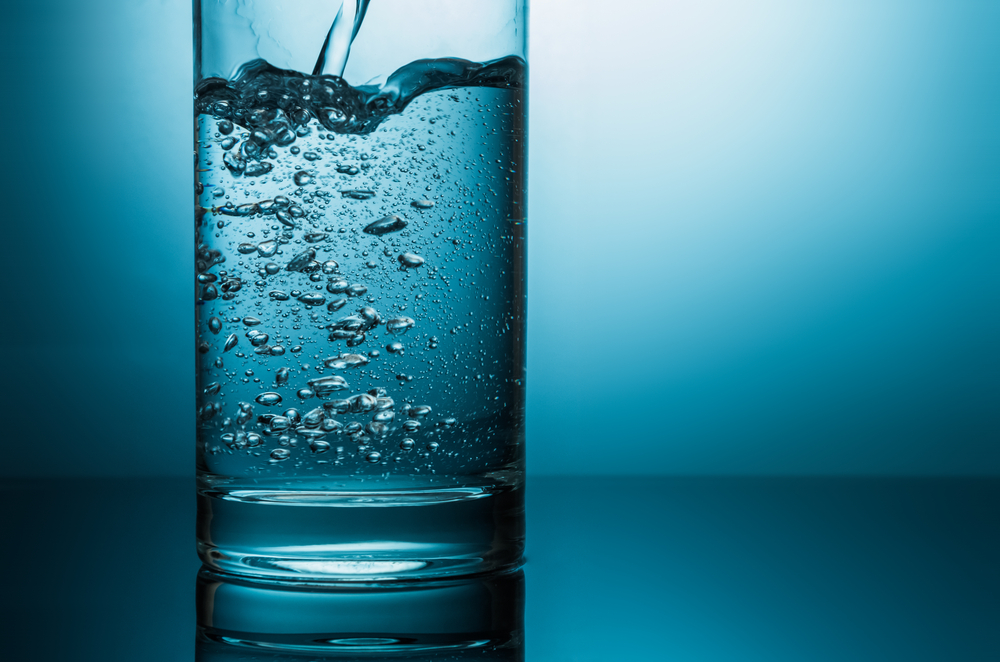
Water is the most abundant constituent of the body representing approximately 60{4f7bf5ffc4dd2943527b9e13cad40ba8015823b935bc089078976a593dc77d18} of the body weight. Water is essential to virtually every body function including digestion, absorption and transport of nutrients, elimination of body waste and regulation of body temperature, and many other chemical processes.
Dehydration will impact your performance during exercise, and leave you with a headache, fatigue, and a foggy brain !
So how much is enough?
35ml per kilo of body weight i.e. 70kg x35 = 2450ml. Yikkees that’s a lot!
Don’t panic …. …Any fluids count towards your total including coffee and tea. You also absorb water through foods, especially fruit and vegetables many are 70-95 {4f7bf5ffc4dd2943527b9e13cad40ba8015823b935bc089078976a593dc77d18} water.
A good guide is to try and drink 6-8 glasses a day, (assume a glass = 450mls)
If you have two coffees (or tea) per day – they are about 250mls each, so there’s one glass done!
Trouble remembering? get yourself some good quality, BPA free bottles, and carry them with you …. in the car, on the bus, at your desk, etc, Most of us spend lots of time driving, it a good time to rehydrate !
How can I tell if I am getting enough water?
Urine should be pale, straw colour. It is often slightly darker first thing in the morning, and becomes progressively lighter through the day if you are well hydrated. If urine is dark and has strong odour this is an indication that you are dehydrated.
What about when I Exercise?
During exercise you loose extra water through sweating and increased respiration. On average, you will loose 1 litre per hour of exercise.
As a general rule of thumb, your body is only able to absorb around 600ml of water per hour during exercise.
It is important to make up the difference throughout the day …. try to hydrate consistently throughout the day by regularly sipping water. (Rather than 3 glasses in the morning and 3 at night! )
*** Be careful If you try to drink too much water during exercise it will probably end up coming back out the way it went it !!! *** Yuk !
Are you training for a longer event?
For endurance events, understanding water and electrolyte balance and absorption is critical. Hyponatremia can result from drinking too much water especially if you are drinking plain water or sports drinks lacking in proper electrolyte profile. This is a very serious, life threatening condition that you need to understand before you undertake any endurance exercise.
Are Sports drinks a good choice for hydration?
Sports drinks contain water, electrolytes (generally sodium and potassium) and carbohydrates (sugar). The average 600ml bottle of sports drink contains the same amount of sugar as a soft drink!!
If you are trying to loose weight, sports drinks are not the best option for you.
If you are exercising for under 60mins you do not need a sports drink. Water is all you need.
Do I need to be replacing electrolytes?
If you are exercising 3-4 times per week for up to an hour at a time, you are most likely to be getting enough electrolytes from your diet.
If you are exercising for 90mins or longer 3-4 times per week, or training for an endurance event, you will need to start replacing electrolytes – sodium, potassium and magnesium. There are a variety of products on the market that enable this, without added sugar. Please ask me if you would like to know more on this.
If you would like more information about your specific needs, or if you would like to have a body composition assessment that includes hydration levels please call Tamara Madden, Nutritionist, on 0407509683.

